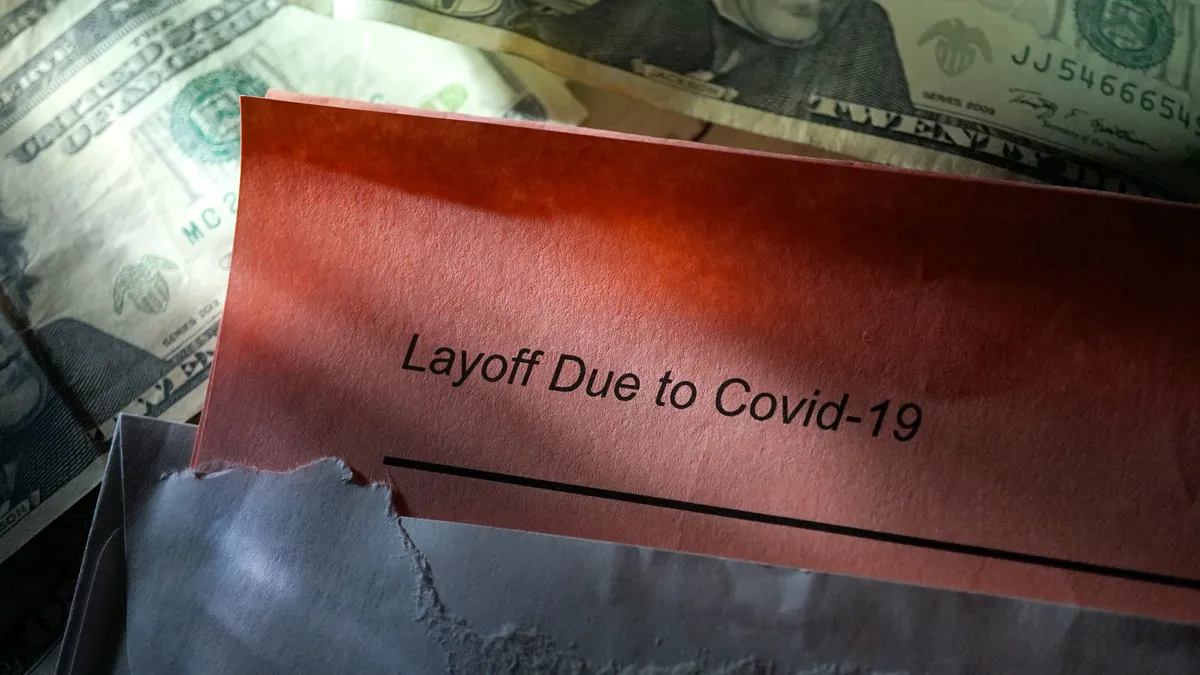Dive Brief:
- The COVID-19 pandemic does not constitute a “natural disaster” for purposes of the Worker Adjustment and Retraining Notification Act, the 5th U.S. Circuit Court of Appeals held last week in a case involving former oil and gas workers of US Well Services (Easom, et. al. v. US Well Services, Inc.), No. 21-20202 (5th Cir. June 15, 2022)).
- In March 2020, US Well Services terminated the employees “‘due to unforeseeable business circumstances resulting from a lack of customer work” caused by factors including “the unexpected adverse impact that the Coronavirus has caused.’” The workers sued, alleging a violation of the WARN Act’s notice requirements. US Well Services argued that COVID-19 was a natural disaster and that, therefore, the WARN Act’s natural disaster exemption applied.
- A district court agreed that COVID-19 was a natural disaster, but it also determined that the natural disaster exemption incorporates a “but-for” causation standard. The court further determined that the record did not show whether COVID-19 was the but-for cause of the layoffs. The 5th Circuit reversed, holding that COVID-19 was not a natural disaster and that the natural disaster exemption incorporated a “proximate” causation standard.
Dive Insight:
The 5th Circuit’s ruling provides an important perspective for employers to consider in the context of mass layoffs that may have been related to the pandemic. Previously, compliance experts told HR Dive about the potential for litigation in response to pandemic-related furloughs and hours reductions.
Under the WARN Act, employers must provide at least 60 calendar days of advance written notice of a plant closing or mass layoff affecting 50 or more employees at a single site of employment. No notice is required if the closing or layoff “is due to any form of natural disaster, such as a flood, earthquake, or the drought currently ravaging the farmlands of the United States.”
However, the 5th Circuit applied a textual analysis to determine that Congress “intended to limit ‘natural disaster’ to hydrological, geological, and meteorological events.” It further determined that exemptions to the law’s notice requirements should be narrowly construed.
“We therefore decline to expand the definition of ‘natural disaster’ beyond what is justified by the Act’s statutory language, context, and purpose,” the 5th Circuit concluded.
The “natural disaster” defense was similarly explored in a 2021 ruling by a federal judge in Florida.
In the case, Benson v. Enterprise Leasing Co., the judge held that “while COVID-19 may be a natural disaster within the meaning of the WARN Act,” the complaint in question showed “a more tenuous connection” between COVID-19 and the layoffs. The judge said the plaintiffs’ complaint alleged that the layoffs resulted from the global travel shutdown that accompanied the spread of COVID-19, rather than the pandemic itself.
“This isn’t a situation where, for example, a factory was destroyed overnight by a massive flood—that would be a ‘direct result’ of a natural disaster,” the judge in Benson said. “This is an indirect result—more akin to a factory that closes after nearby flooding depressed the local economy. [...] Instead, COVID-19 caused changes in travel patterns and an economic downturn, which affected Defendants—so the natural disaster defense doesn’t apply; rather, the ‘unforeseeable business circumstances exception’ is the proper focus.”













